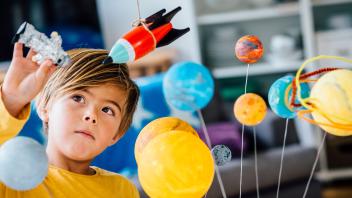Happy New Year!
I had a lot of great feedback about this post in the last few years, so I am sharing it again to kick off 2018. I hope it will help you meet your inclusion-related goals as you get back to work this week.
Those that know me well, know that I love goal setting. I love teaching it to students and I love using it as a tool in my consulting. I also love using it in my own life, especially at this time of year. At my annual New Year’s Eve get together, I always ask guests to share a goal or two at dinner. When this tradition started, it was met with a bit of groaning and eye rolling (okay, more than a bit), but everyone in the group has come to look forward to it (meaning that they now realize that they cannot get out of it).

his year, I changed the exercise a bit by giving everyone a graphic organizer to complete. In the center of the page, I created a space to label the year (e.g., fun, motivation, adventure, running/racing, being daring). Our little group started this tradition a few years ago as a tool for motivation. The template also has spaces for goals in five different categories: financial, health, personal, work/school, and relationships.
As I was filling in my form this year, I started thinking about what a similar tool might look like for educators. So I decided to create a version with education-related categories: inclusion, collaboration, classroom climate, differentiated instruction, and learning.
I am sharing it with all of you just in case you need a boost as you return to the classroom. Consider using it as a co-planning tool, a conversation starter with colleagues or simply as a mid-year reflection. Goals can be related to those you are already targeting as a team, school, or district or you can generate new targets that are unrelated to larger goals to energize your work.
Here are a few ideas for goals in each category:
Inclusion
- I will get Lena included in at least one extracurricular activity by Feb 1.
- I will explore two new pieces of assistive technology that may help Cole’s participation. By February 15, I will work with the speech pathologist to try Inspiration Software and Co:Writer in classroom lessons.
Learning
- All of my students will participate in the science fair (with any necessary support) & will master 10 new related vocabulary words by April 15.
- All of my students will read 20 books (using assistive tech or peer support, if needed) by June 1. I will read them 6 additional books by this same date.
- All of my students will watch 5-7 high-quality social justice themed documentaries (Including Samuel; When the Levees Broke; Fordson: Faith, Fasting & Football) and make their own documentary mini-film this semester. They will show their films at a Social Justice Film Festival they plan and host. This will be completed by June 30.
Classroom climate
- I will ask my middle school students to publicly share “appreciations” with classmates during our morning meeting. I will do this once a month until the end of the school year.
- An adult in my classroom (e.g., volunteer, speech therapist, teacher) will welcome students at the door every day until the end of the school year.
- I will ask all students in my art classes to evaluate me and my classroom climate in a formal survey by January 15.
Collaboration
- I will use parallel teaching & anchor teaching at least 1x/month to vary my lessons. I will have engaged in this practice 5 times by June 30.
- I will co-teach with one new partner (e.g., occupational therapist, reading specialist) by January 30.
- I will observe two other colleagues who are using “flipped” math lessons and ask one of them to coach me in trying 1-2 flipped lessons. I will implement this by January 20th.
Differentiated instruction/UDL
- I will try one new enrichment strategy by January 15.
- I will recruit and train 3 classroom volunteers for math stations by January 31.
- I will use at least 6 new active learning techniques to enhance my lectures by March 1.
Hope some of you have a chance to draft some goals as you dive back into work. Would love to hear of any that you formulate so don’t hesitate to share with me via email or on Facebook.
Happy goal setting!
About the author
Dr. Paula Kluth is a consultant, author, and advocate who works with teachers and families to provide inclusive opportunities for students with disabilities and to create more responsive and engaging schooling experiences for all learners. Dr. Kluth is a former special educator who has served as a classroom teacher and inclusion facilitator. Her professional interests include differentiating instruction and inclusive schooling. See a selected list of her books for teachers. All posts are reprinted with permission from Paula Kluth .
